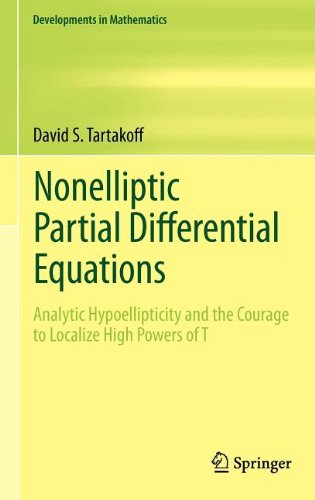

Most ebook files are in PDF format, so you can easily read them using various software such as Foxit Reader or directly on the Google Chrome browser.
Some ebook files are released by publishers in other formats such as .awz, .mobi, .epub, .fb2, etc. You may need to install specific software to read these formats on mobile/PC, such as Calibre.
Please read the tutorial at this link: https://ebookbell.com/faq
We offer FREE conversion to the popular formats you request; however, this may take some time. Therefore, right after payment, please email us, and we will try to provide the service as quickly as possible.
For some exceptional file formats or broken links (if any), please refrain from opening any disputes. Instead, email us first, and we will try to assist within a maximum of 6 hours.
EbookBell Team

4.4
22 reviewsThis book fills a real gap in the analytical literature. After many years and many results of analytic regularity for partial differential equations, the only access to the technique known as $(T^p)_\phi$ has remained embedded in the research papers themselves, making it difficult for a graduate student or a mature mathematician in another discipline to master the technique and use it to advantage. This monograph takes a particularly non-specialist approach, one might even say gentle, to smoothly bring the reader into the heart of the technique and its power, and ultimately to show many of the results it has been instrumental in proving. Another technique developed simultaneously by F. Treves is developed and compared and contrasted to ours.
The techniques developed here are tailored to proving real analytic regularity to solutions of sums of squares of vector fields with symplectic characteristic variety and others, real and complex. The motivation came from the field of several complex variables and the seminal work of J. J. Kohn. It has found application in non-degenerate (strictly pseudo-convex) and degenerate situations alike, linear and non-linear, partial and pseudo-differential equations, real and complex analysis. The technique is utterly elementary, involving powers of vector fields and carefully chosen localizing functions. No knowledge of advanced techniques, such as the FBI transform or the theory of hyperfunctions is required. In fact analyticity is proved using only $C^\infty$ techniques.
The book is intended for mathematicians from graduate students up, whether in analysis or not, who are curious which non-elliptic partial differential operators have the property that all solutions must be real analytic. Enough background is provided to prepare the reader with it for a clear understanding of the text, although this is not, and does not need to be, very extensive. In fact, it is very nearly true that if the reader is willing to accept the fact that pointwise bounds on the derivatives of a function are equivalent to bounds on the $L^2$ norms of its derivatives locally, the book should read easily.